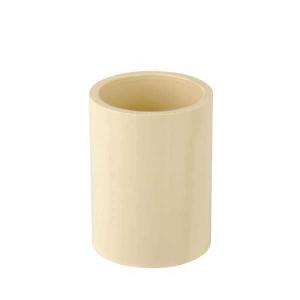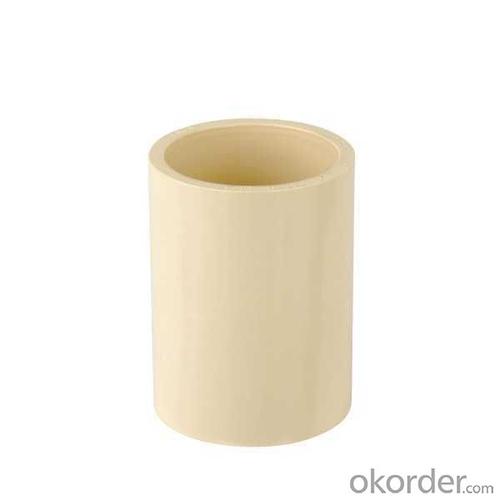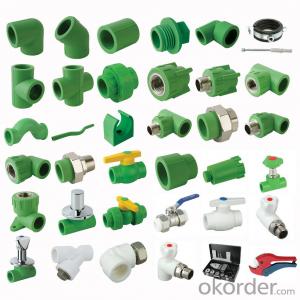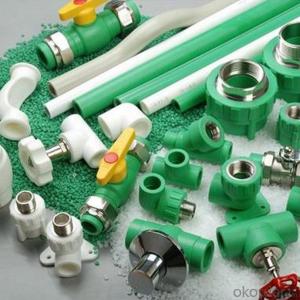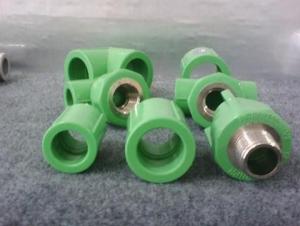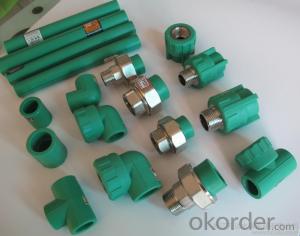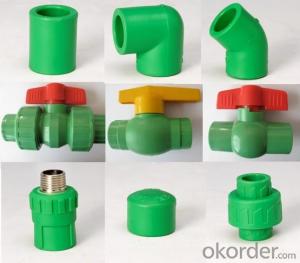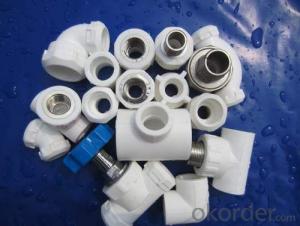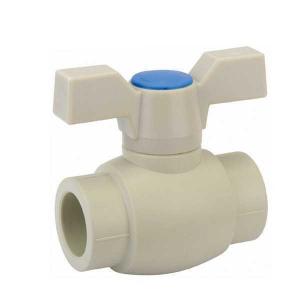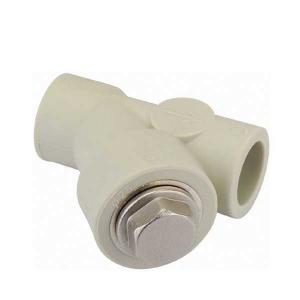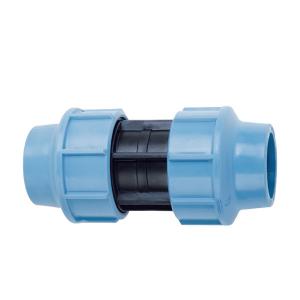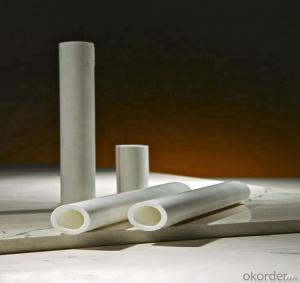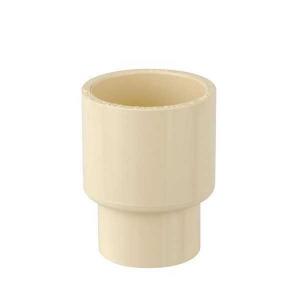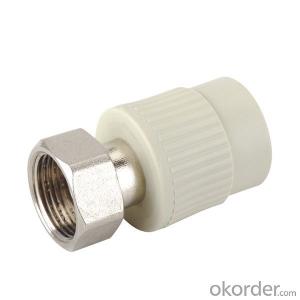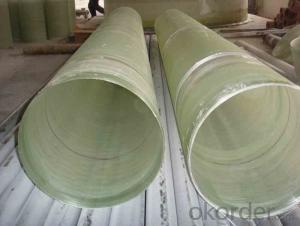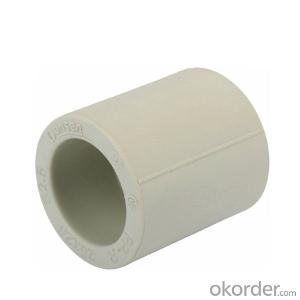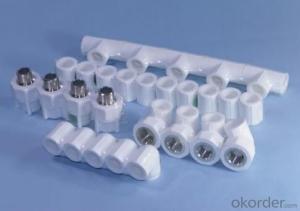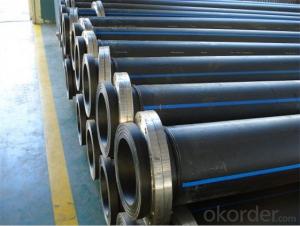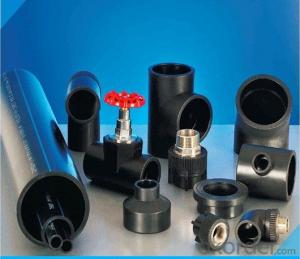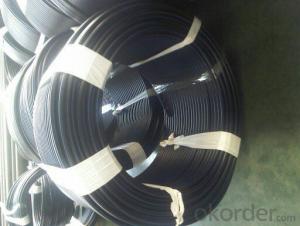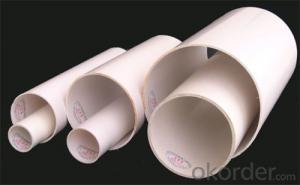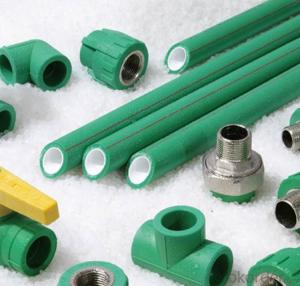High Quality Socket Plastic Pipe With Compression Fittings
- Loading Port:
- Ningbo
- Payment Terms:
- TT or LC
- Min Order Qty:
- 1000 watt
- Supply Capability:
- 100000 watt/month
OKorder Service Pledge
Quality Product, Order Online Tracking, Timely Delivery
OKorder Financial Service
Credit Rating, Credit Services, Credit Purchasing
You Might Also Like
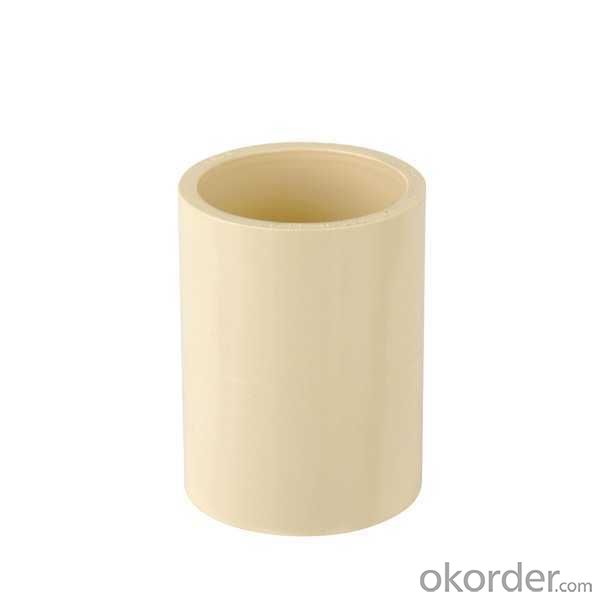 cpvc plastic fittings raw materials from KANEKA japan laser marking high rigidity easy installation corrosion-resistant PN25 ASTM2846 standard size:1/2''--2''
cpvc plastic fittings raw materials from KANEKA japan laser marking high rigidity easy installation corrosion-resistant PN25 ASTM2846 standard size:1/2''--2''
1.Material:Random Polypropylene(Hyosung R200P);
2.ISO9001&ISO14001;
3.Standard:GB/T 18742.3-2002, DIN8077/8078;
4.OEM also ok
- Q: Can plastic pipe fittings be used for gas applications?
- No, plastic pipe fittings should not be used for gas applications. Gas applications require materials that can withstand high pressures and are resistant to potential leaks or failures. Metal fittings, such as those made of brass or steel, are commonly used for gas applications due to their strength and durability.
- Q: How do you connect plastic pipe fittings to copper pipes?
- To connect plastic pipe fittings to copper pipes, you can use a transition fitting. This fitting typically has a threaded end that screws onto the plastic fitting, while the other end is soldered or brazed onto the copper pipe. It creates a secure and leak-proof connection between the two different materials.
- Q: Can plastic pipe fittings be used for vacuum systems?
- Yes, plastic pipe fittings can be used for vacuum systems. However, it is important to carefully select fittings made from suitable materials and designed for vacuum applications to ensure they can withstand the required pressure and maintain a reliable seal.
- Q: Can plastic pipe fittings be used for gas piping?
- Yes, plastic pipe fittings can be used for gas piping, but it is important to ensure that the fittings are specifically designed and approved for use with gas. Using fittings that are not specifically designed for gas can be dangerous and may result in leaks or other safety hazards.
- Q: Can plastic pipe fittings be used for irrigation drip systems?
- Yes, plastic pipe fittings can be used for irrigation drip systems. Plastic fittings are commonly used in drip irrigation systems due to their durability, affordability, and resistance to corrosion. They are easy to install, versatile, and compatible with various pipe sizes. Plastic fittings also offer good moisture resistance, ensuring long-lasting performance in irrigation applications.
- Q: Are plastic pipe fittings available in different sizes?
- Yes, plastic pipe fittings are available in different sizes to accommodate various plumbing needs and compatibility with different pipe diameters.
- Q: Do plastic pipe fittings require any special testing or certification?
- Yes, plastic pipe fittings typically require special testing and certification to ensure they meet industry standards for performance, durability, and safety. This testing is necessary to ensure that the fittings can withstand various pressures, temperatures, and chemicals they may encounter during their intended use. Certification from recognized organizations or regulatory bodies confirms that the fittings have undergone rigorous testing and comply with relevant standards, providing assurance to customers and end-users.
- Q: Do plastic pipe fittings require any special insulation or lagging?
- Yes, plastic pipe fittings do not require any special insulation or lagging as they are designed to withstand and insulate against heat loss or gain.
- Q: How do plastic pipe fittings handle extreme weather conditions?
- Plastic pipe fittings are generally designed to handle a wide range of weather conditions, including extreme temperatures and harsh weather elements. Most plastic materials used in these fittings, such as PVC or CPVC, have good resistance to UV radiation, humidity, and temperature variations. They are engineered to withstand freezing temperatures without cracking or becoming brittle, as well as resist corrosion from moisture or chemicals. However, it is important to note that the specific performance of plastic pipe fittings can vary depending on the type and quality of the material used, as well as the manufacturer's specifications.
- Q: Are plastic pipe fittings suitable for pharmaceutical laboratories?
- Plastic pipe fittings are generally not suitable for pharmaceutical laboratories due to concerns about chemical leaching, contamination, and durability. It is recommended to use stainless steel or other non-reactive materials that meet industry standards for cleanliness and safety in pharmaceutical environments.
Send your message to us
High Quality Socket Plastic Pipe With Compression Fittings
- Loading Port:
- Ningbo
- Payment Terms:
- TT or LC
- Min Order Qty:
- 1000 watt
- Supply Capability:
- 100000 watt/month
OKorder Service Pledge
Quality Product, Order Online Tracking, Timely Delivery
OKorder Financial Service
Credit Rating, Credit Services, Credit Purchasing
Similar products
Hot products
Hot Searches
Related keywords
